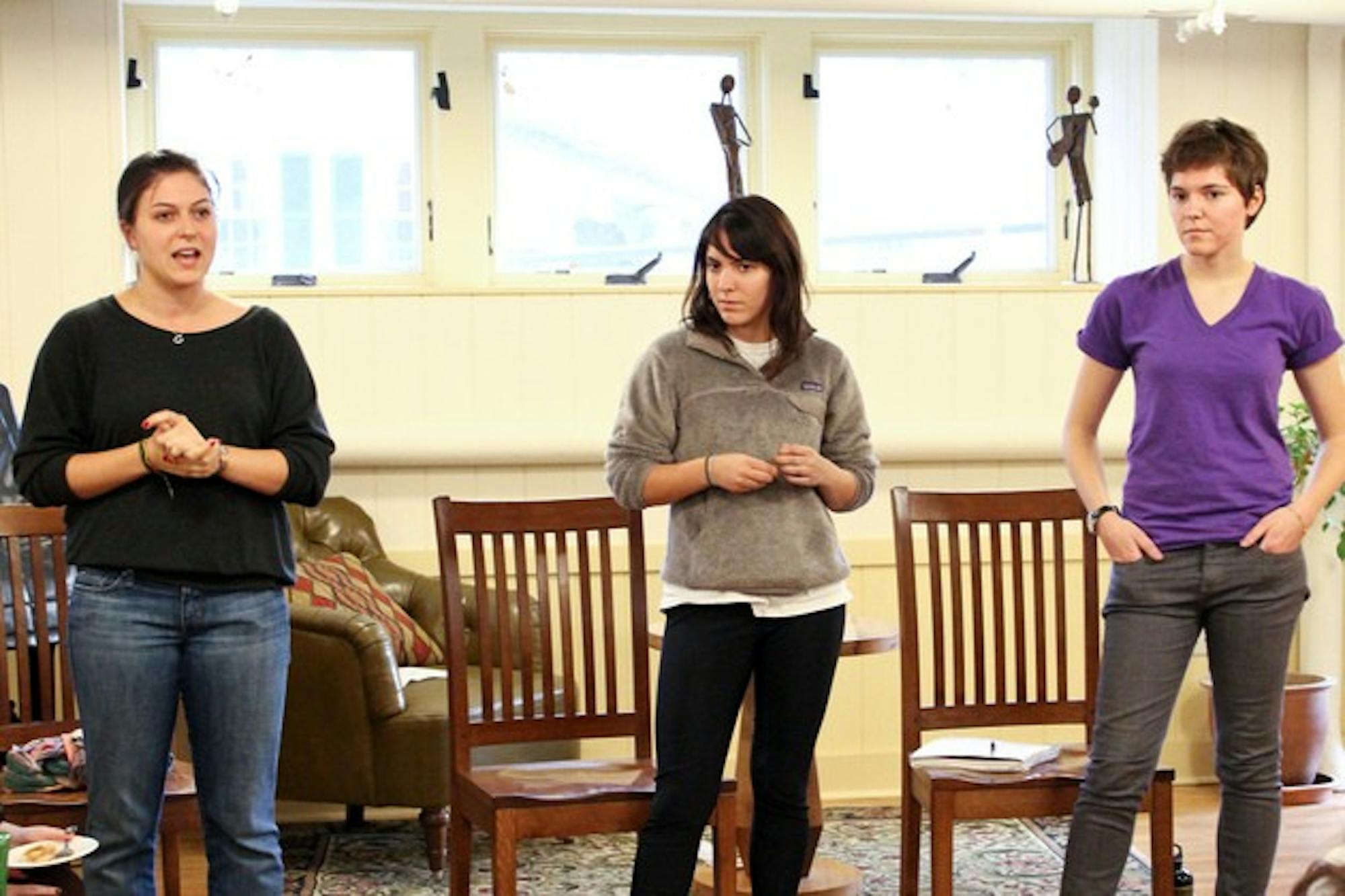Ways to educate students, especially freshmen, about Dartmouth culture and sexual assault were a focal point of the discussion. To help achieve this goal, the SPCSA implemented the Sex Signals program and follow-up discussions for freshmen during Orientation, committee members said.
Several members of the SPCSA discussed the committee's current projects and future plans for addressing the issue including an ongoing poster campaign around campus, a "revamped" Students Abuse Awareness Program and programming plans for new members of Greek Organizations.
Many students who attended the discussion agreed there is a need for additional programming to prevent sexual assault on campus. One female audience member criticized some previous programs run by campus groups such as Mentors Against Violence, commenting that students may have felt uncomfortable discussing certain topics among members of the opposite sex. She suggested that future programs be segregated by gender so that students would feel more comfortable.
Although much of the discussion centered on Greek organizations, a number of students suggested shifting the focus of the discussion on sexual assault away from fraternities and sororities and toward the wider Dartmouth community.
It is important to make understanding of sexual assault "a reality for everyone," regardless of whether or not students have a personal connection to the issue, one student said.
As an example, another audience member pointed to an activity conducted at the beginning of Mentors Against Violence "facilitations," programs that aim to encourage open discussion of ways to prevent sexual assault and hostility.
MAV Director Shanel Balloo '11 explained that the group often begins facilitations by describing a scenario in which a "close friend, family member or loved one" is being assaulted and a third party witnessing the event chooses to do nothing to respond.
"This exercise is done to make the gravity of the situation more relatable to the group," Balloo said.
Several students brought up the issue of "bystander stigma," and called for the SPCSA to address the problem.
"We do have an effective bystander system in place in regards to alcohol the Good Sam Policy," one student said. "Maybe a policy, system or campaign modeled after that could be effective [in regards to sexual assault]."
Students also discussed the "stigma" that can surround reporting incidences of sexual assault. SPCSA Chair Katherine Lindsay '11 asked the group how aware they thought the students were about incident reporting and opportunities to seek counseling.
"We are in the works of creating a simple resource of the steps that one can take," Erin Jaeger '11, head of the accountability committee of the SPCSA, said. "We do want to make it very clear that reporting does not mean your are bound by anyone or by any means to press charges of any sort." Jaeger is a former member of The Dartmouth staff.
Many victims may fear what they see as the potential consequences of filing a report, such as being ostracized by a fraternity, several students said.
"Of the people I know who have been sexually assaulted, not one has reported it because they didn't want to ruin some guy's life or they didn't want to ruin their reputation by accusing a guy in a popular frat," one female student said.
Several students discussed issues of accountability among fraternities and other organizations that host parties. Some students brought up the problems associated with several social norms accepted on campus including "excessive" drinking.
"We as a student population have to say what kind of behavior do we want to say is acceptable on this campus," Lindsay said. "It's hard to change culture, but it does come from us and it is important to start living the ideal of the community we want to see as students."
A majority of the event's attendees were female. Lindsay said that SPCSA is hoping to reach out to more men on campus in the future and draw more male attendance at their events.




